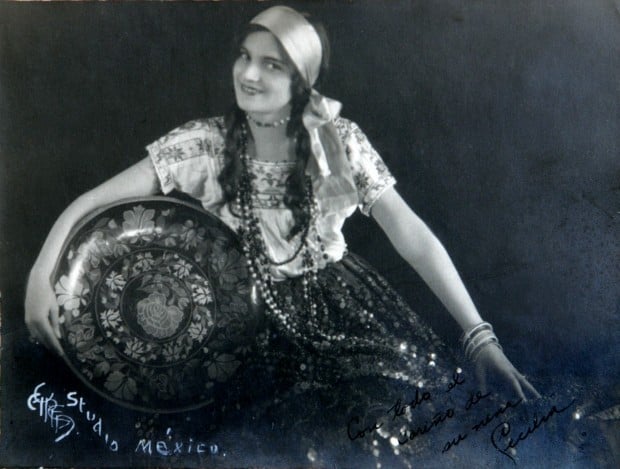Cele Peterson, who for more than 75 years served as Tucson's arbiter of fashion and grace, died late this morning in Tucson. She was 101 years old.
Last year, scores of well-wishers turned out to fete her 100th birthday. "I'm being called an icon," Peterson said at the time - admitting for the first time her age.
Icon she was. Besides operating a succession of stores across Tucson, including her landmark store downtown on East Pennington Street, Peterson was at the forefront of various good causes.
She was one of the founders of the Tucson Children's Museum, the Arizona Theatre Company, the Arizona Opera Company and Casas de los Niños, whose first Casa crisis nursery was housed in a building she owned.
"She always saw Tucson as a great place in the past but also as a great new city of the future," says Mayor Bob Walkup, who often received Peterson in his office.
"She had a way of telling you exactly what she expected you to do. She really loved downtown and wanted me to know I needed to make downtown a great place to live."
When Walkup's wife, Beth, was first diagnosed with breast cancer in 1995, he wanted to do something to boost her morale.
"I bought her a low-cut evening gown from Cele's store and said, ‘Let's go dancing.' "
Indomitable even when macular degeneration took her sight in later years, Peterson continued to work at her current store at 4811 E. Grant Road until just a few years ago.
In 2004, she served as grand marshal of the rodeo parade. "They picked me up with a forklift and placed me in the wagon," she would later say.
Born in Pensacola, Fla., Peterson was 3 years old when she moved with her family to Bisbee in 1912.
There, she watched history unfold - from the Mexican Revolution raging just across the border, to striking Bisbee copper miners shuttled into cattle boxcars and deported.
After a year at the University of Arizona, Peterson enrolled at Sullins College in Bristol, Va., earning a degree in political science. She also studied political science at George Washington University, where she would meet her future husband, Tom Peterson, who died in 1989.
With help from Arizona Sen. Carl Hayden, Peterson snagged a job translating Spanish manuscripts at the Library of Congress. In the summer of 1931, she was sent to Mexico City to work in the archives. There she met two women from Tucson who suggested she open a store in Tucson.
Before the year was up, her Co-Ed Shop at the corner of Stone Avenue and Pennington Street would be doing a brisk business.
In 1934, she and Tom were married at the Bisbee courthouse. He handled the Tucson store's paperwork and sold real estate. She managed the store and, with Tom, raised five children.
When her lease was up in 1937, Peterson moved the store to a little house at 46-48 E. Pennington St. - soon to be known as "Fashionable Pennington Street."
"We pioneered the street," Peterson later recalled. "There were three little houses there and Reilly Funeral Home."
Renamed Cele Peterson Shop, the store would weather the Great Depression, World War II, and a fire in 1956 that injured 16 employees. Naturally, its proprietor rebuilt.
Winter visitors, customers from Mexico, and the wives of Fortune 500 executives all flocked to the little store, which carried everything from $600 ball gowns to Station Wagon Togs - Peterson's own line of denim and corduroy clothing
Lady Astor shopped here. So did Debbie Reynolds and Elizabeth Taylor, together - before Liz stole Debbie's husband.
In later years, Peterson would open shops in four suburban shopping centers while keeping her Downtown store open until the early 1980s.
She was the last to leave downtown - after Levy's, Steinfeld's, Myerson's, and yes, even Jácome's. Downtown parking was the main culprit, she maintained.
"There were a couple of police who loved to give tickets," she said back in 2006, the year her business turned 75.
For decades, Peterson hosted a local five-minute radio show five days a week called "Star of the Day." The connections she made there led to her involvement in many community causes, including the founding of Casa de los Niños.
When Casa founder Sister Kathleen Clark talked to Peterson about starting a refuge for abused children, Peterson offered her a building she owned on East Speedway at North Fourth Avenue. In 1973, it became the first Casa de los Niños.
"Nobody does it alone," Peterson told the Star back in 2006. "I had the most wonderful people helping me."





